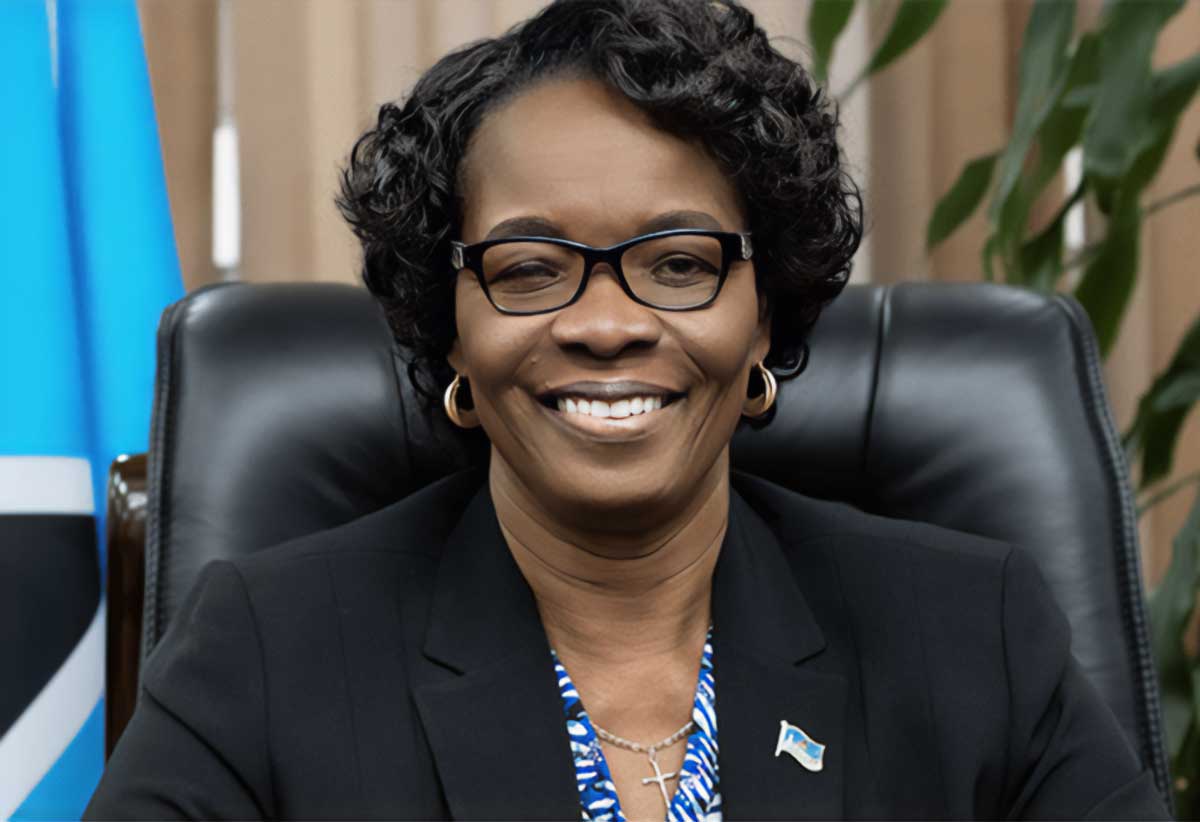
Government is looking to implement measures to modernize the public service in an effort to provide greater efficiency and productivity in the sector.
Public Sector Reform is to feature high on government’s agenda for the fiscal year 2023 to 2024 and among the measures intended to modernize the sector would be the continued digitization of government services.
Minister for the Public Service, Home Affairs, Labour and Gender, Dr. Virginia Albert- Poyotte says, a major focus of the reform process is to create a culture of productivity.
“We need a public service that will adhere to the principles …the first step is to design and enact new legislation to start the process to effect changes and the culture of the public service to get greater productivity,” noted Dr. Poyotte.
“And that is how we will achieve health and security, and stability and sustainability in this country,” she added.
While addressing legislators during the recent Budget Debate on the Estimates of Revenue & Expenditure, the minister said, several meetings have been held to scrutinize the Public Service Management Bill and Regulation.
The Public Service Management Bill was enacted in 1983. And, to date, several stakeholders have weighed in on the proposed legislation that seeks to reflect a more modernized public sector.
Dr. Poyotte recalled that the need for the Public Service Management Bill was recognised about two decades ago, where a study was undertaken by a legal consultant, and “now we are reviewing the legislation so that we can make this a new law, under which this government will govern”.
The minister added, “We had multiple stakeholder consultations to look at the regulation, and the Public Service Management Bill will look at new areas of promoting efficiency and effectiveness.
Commenting on the gender component in the department, Dr. Poyotte underlined the significance of the ‘Gender Focal Points’ to be implemented at every ministry to reflect gender sensitivity in government’s policies.
More than a decade ago, government had embraced the implementation of the Employee Assistance Programme (EAP), which was seen stepping in line with countries that have committed to modernizing their public services.
At the time, Principal Consultant on the EAP Lionel Remy applauded the Public Service’s reform and modernization thrust, as the ministry continued its consultation phase with unions and staff associations.
Remy noted, it is critical that public services view the workforce in a humane light.
He commended the authorities for “taking a bold step; it’s one of the leading countries of the region concerning that area of human resource development”.
The EAP official said “we should feel very proud about that”, because other Trinidad & Tobago (T&T) , Barbados and the British Virgin Islands (BVI) “few other governments have gone the distance to ensure that they are providing human support systems which will encourage development because we know people will have difficulties.”
Then Minister for the Public Service Leonard Montoute said government fully endorses the implementation of the EAP which will benefit all employees.
Added Montoute: “A comprehensive Employee Assistance Programme has two strategic dimensions. Firstly, the EAP is a voluntary workplace programme that provides cost free and confidential assessment, short term counselling and referral, and follow up services to employees for personal and or work related problems that may affect work performance attendance and conduct.”
He also described the programme as a systematic risk identification and management intervention that seek to develop and sustain desired behaviours and work attitudes consistent with the performance and productivity goals of the public service.
In the current context, Dr. Poyotte asserts: “The Public Service Management Bill must look at public service principles, values, objectives and policies that was not in the Staff Orders.”
[R.A].




![Attendees at the UHC logo and website launch [Photo credit: GOSL]](https://thevoiceslu.com/wp-content/uploads/2026/02/Attendees-at-the-UHC-logo-and-website-launch-380x250.jpg)






![Remnants of an alleged drug boat blown up in a lethal strike by the U.S. military last week surfaced off Canouan on Saturday [Photo credit : St Vincent Times]](https://thevoiceslu.com/wp-content/uploads/2026/02/Remnants-of-an-alleged-drug-boat-blown-up-380x250.jpg)

